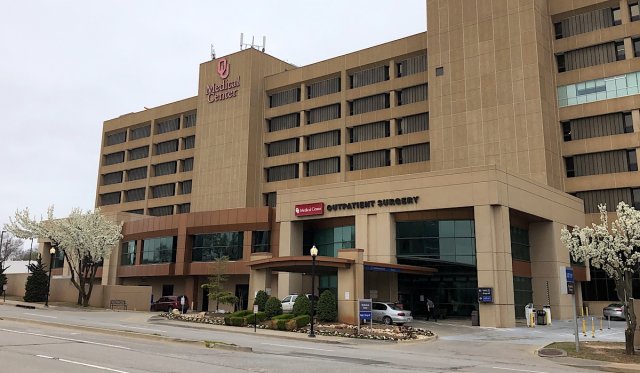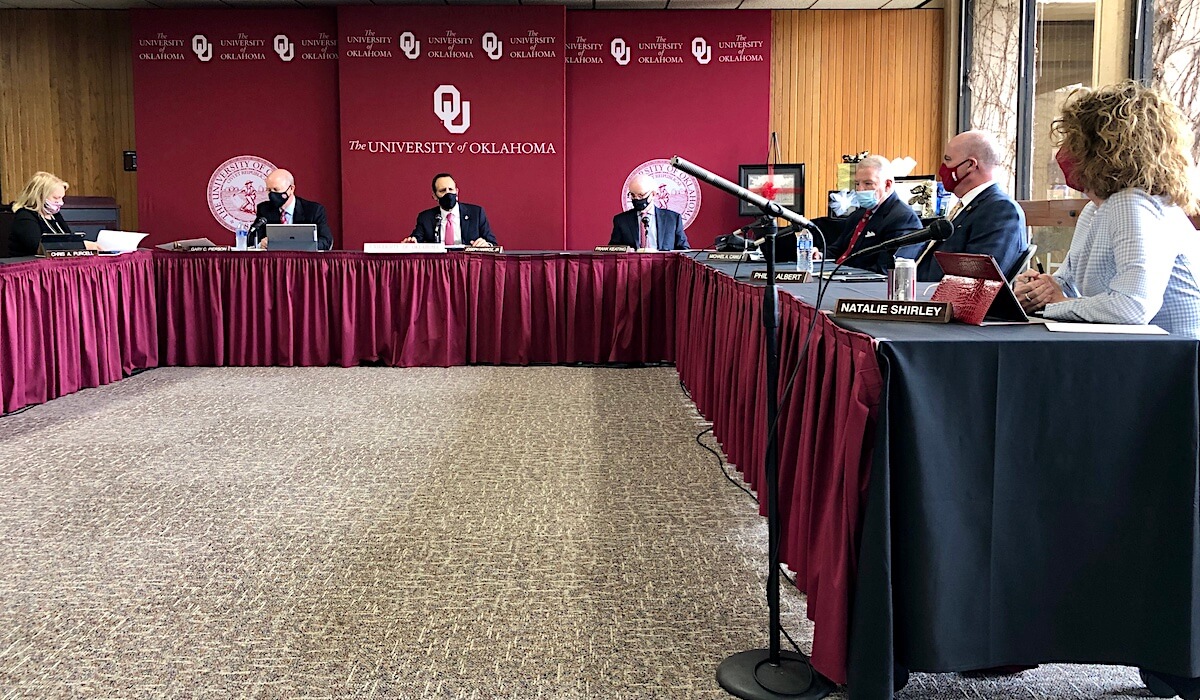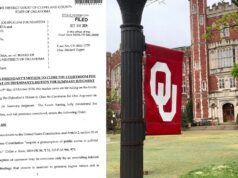

In an effort to streamline hospital administration, gain efficiencies and improve care, the state-run OU Physicians group will merge with the nonprofit OU Medicine, Inc. to create a new nonprofit, comprehensive and academic health system called OU Health.
While contractual agreements and details about employee transitions are still being negotiated this spring, OU President Joe Harroz told media this afternoon that the merger should be finalized by July 1. The OU Board of Regents previewed the merger last week, and Harroz disclosed additional details in a press release and a letter emailed OU employees Tuesday morning.
“This merger of equals into a single enterprise will bring immense benefits to Oklahoma, our students, employees, and the patients we serve,” Harroz wrote. “A fully integrated, comprehensive academic health system is critical to Oklahoma’s future health outcomes. Nearly every other successful academic health system in the nation has an integrated clinical structure. What we provide — research-driven care — is entirely unique in our state, so it is incumbent upon us to join together in delivering to Oklahomans the highest quality care possible. This merger is an incredible step forward for Oklahoma and for our OU Health Sciences Center.”
Later, Harroz explained to a small press gaggle how the existing groups operate together but separately in a manner that has posed challenges.
“So for any decisions to be made to align the interests of patient care and the decision making for growth, you had to go through four different CEOs and four different boards,” Harroz said. ” So what this merger does is it takes the hospitals, the decision making for the [University Hospitals Authority Trust], and it takes the physicians and the providers over here, and brings them under a single enterprise. So they’re all working together under a single board, a single CEO — which is a national search we’ll be launching right now — that then runs the enterprise itself. And it’s really important, because this translates into better care for the patients.”
Harroz said the top academic health systems in the country — and the healthiest states in the country — all operate under a similar model to OU’s new arrangement. Harroz said a 15-member board will govern OU Health, with five members coming from the university, five coming from the UHAT and five being community stakeholders.
“As it relates to the providers, we (have) talked about those 1,100 providers that are out there,” Harroz said. “There will be a major allocation of their time — some all, some maybe not all, to the new not-for-profit, to the new 501(c)(3).”
Harroz said some providers and other employees could be shared employees of the university and OU Health with the new entity reimbursing OU.
‘We’re going to have enhanced revenues’
On Friday, the OU Board of Regents announced the planned merger, which was discussed during lengthy executive sessions over the past year. Regent Michael Cawley also described the perceived benefits of the change.
“There has been a separate organization that runs the hospitals and a separate organization running the doctors, and for the first time in their history, those two entities are going to combine as one unified academic health center,” Cawley said during Friday’s meeting. “It’s really exciting from the standpoint that we’re now going to have economies of scale, efficiencies. I know that we’re going to have enhanced revenues, and more importantly we’re going to have enhanced health care for patients. It’s just going to be terrific.”
An ‘awkward’ element to BCBS, OU dispute
On Friday, regents also discussed an ongoing dispute between the OU’s health care providers and Blue Cross Blue Shield. OU says the insurance company is refusing to reimburse providers at a fair rate, and the insurance company says it is trying to manage costs for its members. The two groups have until June 28 to strike an agreement or else BCBS customers will not have OU Health services in their insurance network.
RELATED
Student housing plan and a major merge: ‘Big deals’ discussed by OU Board of Regents by Tres Savage
Tuesday, Harroz said there were no new developments regarding the BCBS dispute.
“It’s something that we are focused on daily. I mean, you could hear it from the intensity of the comments that it is something about which we care passionately when you look at this question,” Harroz said. “It’s inexorably intertwined with the question of the larger question being discussed today, which is, how do you make sure Oklahomans have access to a level of health care that allows for a healthy populace?”
The population for whose health Harroz is most responsible is OU faculty and staff, and in a twist of irony, Blue Cross Blue Shield became OU’s health payer in January 2020.
Harroz acknowledged that complicating factor.
“The easy answer is to say they are different divisions of the same company. The reality is, it’s the same company,” Harroz said. “And so we’re hopeful that they’ll look at the broader interests of our state and of their relationship with the university. But the reality is, if for some reason it doesn’t work, it is at a minimum awkward and something that would have to be addressed.”





















